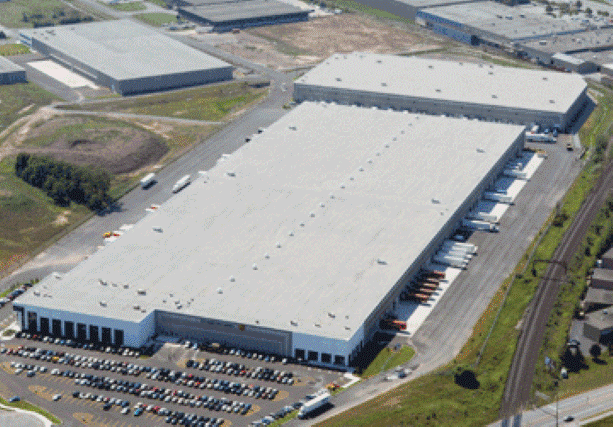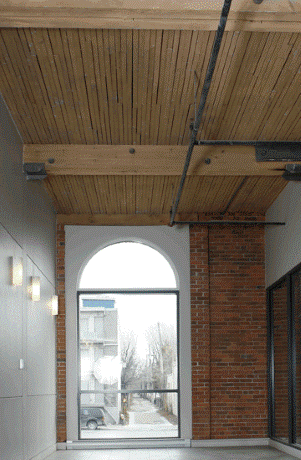For a construction company, knowing the market is an obvious asset. But an intimate knowledge of one’s own capability is an asset often overlooked.
For a construction company, knowing the market is an obvious asset. But an intimate knowledge of one’s own capability is an asset often overlooked.
Giffels is a Toronto-based company that’s part of the larger Ingenium Group, an entity that continues to fine-tune itself to best serve clients.
“The Ingenium Group is an employee-owned private company that rests on two principle pillars,” says Giffels President, Colin Soule. “One is an architectural practice with offices in Canada, the U.S. and the Middle East and the other is Giffels, based in Canada, with projects ranging across the country.”
The company’s history is one of carefully-managed growth as it acquires and develops the skills it needs to connect with clients.
Giffels started out in 1925 as an engineering concern in Detroit, Michigan. Its primary business was consulting with the U.S. auto industry to help build automobile assembly plants.
“When the Big Three moved into Ontario, Giffels established an office in Windsor to work on Ford and GM assembly plants,” explains Soule. As the Canadian branch child grew stronger, it broke away from the parent and set out on its own, focusing on engineering. Oddly enough, a reunification of sorts happened three years ago when the ‘child’, now owned by Ingenium, bought out the original American parent.
In the mid 1980s, the company expanded into the architectural sphere as part of a move toward construction and design-build. “It was a natural evolution that emerged from the strong relationships we had developed with a number of clients asking us to assist them in executing the work we designed for them,” says Soule, who doubles as Giffels’ in-house lawyer.
Through acquisitions and evolution, the Ingenium Group today includes:
• NORR Limited with offices in Toronto, Kingston and Ottawa; NORR, LLC, Detroit and Tampa, and NORR Group International Consultants Limited, with offices in Dubai, Abu Dhabi and select international offices.
• Poon Mackenzie Architects, with offices in Calgary and Vancouver.
• Stonefield Development Consultants, a land-use planning and project management firm, with offices in Vancouver, Calgary and Denver.
• Cion Corp, custom software development for the A/E/C industry.
That’s not just a list of corporate entities, but an important factor in Giffels' success.
Giffels supplies its resources and expertise to the others, and vice versa, to provide integrated solutions to clients. Whether delivering a commercial, industrial, residential or institutional project, the company tailors its services to provide the mix of resources clients demand. The Ingenium Group helps lubricate the wheels of its various business entities with a healthy balance sheet.
“Giffels typically provides design components on the projects we build,” says Soule.
Recent projects completed by the company include Oshawa’s General Motors Centre arena, which included architectural, structural, and design-build services; the South Okanagan Events Centre in Penticton, BC; and the Archives Ontario document storage facility, a P3 project located in Bolton.
A typical Giffels project is the Lakeshore Lions Club arena scheduled for completion in fall of 2009. The 260,000-square-foot hockey facility will house three National Hockey League-sized rinks, one Olympic pad and provide practice ice for the Toronto Maple Leafs and the Toronto Marlies.
It’s the type of project at which Giffels excels.
“We know where our strength lies,” says Soule. “You need to assess your capabilities and work with them. We’re typically working on projects under $100-million.
“We would look at larger projects above $100 million only with a partner, perhaps an international player with a larger balance sheet, who sees Canada as an attractive market and wants to team up with a company who knows the terrain and what the execution issues are, so they could hit the ground running.”
The company continues to reinvent itself in increments to pursue business opportunities. It’s responsive to market forces, without being ruled by them. “You need foresight and flexibility to do that,” explains Soule. “It’s not always a painless process to evolve, but you need to tailor your expertise to where the work is.”
One of Giffels primary markets has been industrial work in Ontario, Quebec and Alberta. Projects over the past few years include an 860,000-square-foot distribution centre for The Brick and half-million-square-foot facilities for Best Buy and Future Shop, all located in Brampton.
In Quebec, Giffels completed the College Charles-Lemoyne, the largest French private school in the province. The project initially had financing problems until Giffels took the lead in finding a method of structuring the financing for the construction of the new 103,000-square-foot campus, as well as the development of the supplementary surrounding land with over 250 residential units.
With the recent downturn in the manufacturing sectors in Ontario and Quebec and North American-wide plummet of the automotive sector, Giffels is already on the move.
“When we see where the market is heading, we’ve got the ability to re-focus and secure work in other areas as the economy shifts and re-orients itself,” says Soule. “That’s something we’ve always been good at doing.”
The company is sensitive not only to geographical opportunities and business cycles, but to the way in which clients want their projects delivered. Flexibility of delivery is a key component of Giffels’ success.
“We’re not just focused on one delivery mechanism,” says Soule. “That’s what makes Giffels a successful company.
“We do construction. We do design-build. We do P3 institutional work. We can even invest money into project development on projects that we design and build.
“On a P3 we could enter a design-build-operate competition by pulling in outside expertise to the team — a specialist in operating cancer care facilities or arenas — for example. This is a complex type of project, and not the type of contract a company enters into on a whim. We’re well positioned in the P3 market.”
Soule predicts, not surprisingly, that the country will see less construction activity in 2009 than in 2008, particularly with the severe constraints on available capital. But government infrastructure spending, much of it in P3 form, would help to ease the slowdown.
“Everyone at the government level — federal, provincial and local — is promising infrastructure investment, but realistically, in this line of business, the investment capital is not going to fall in your lap overnight,” says Soule.
“A new cancer care facility, correctional facility, or a new courthouse, typically has some significant lead time, even if there’s a commitment to get those projects built.”
Soule says that, regardless of delivery method, the company enjoys projects with “magic and pizzazz” as much as it does a big box warehouse facility. “I think the common thread is success,” says Soule. “Successful projects excite us, and we’ve had plenty of them.”

1/4

2/4

3/4












Recent Comments
comments for this post are closed